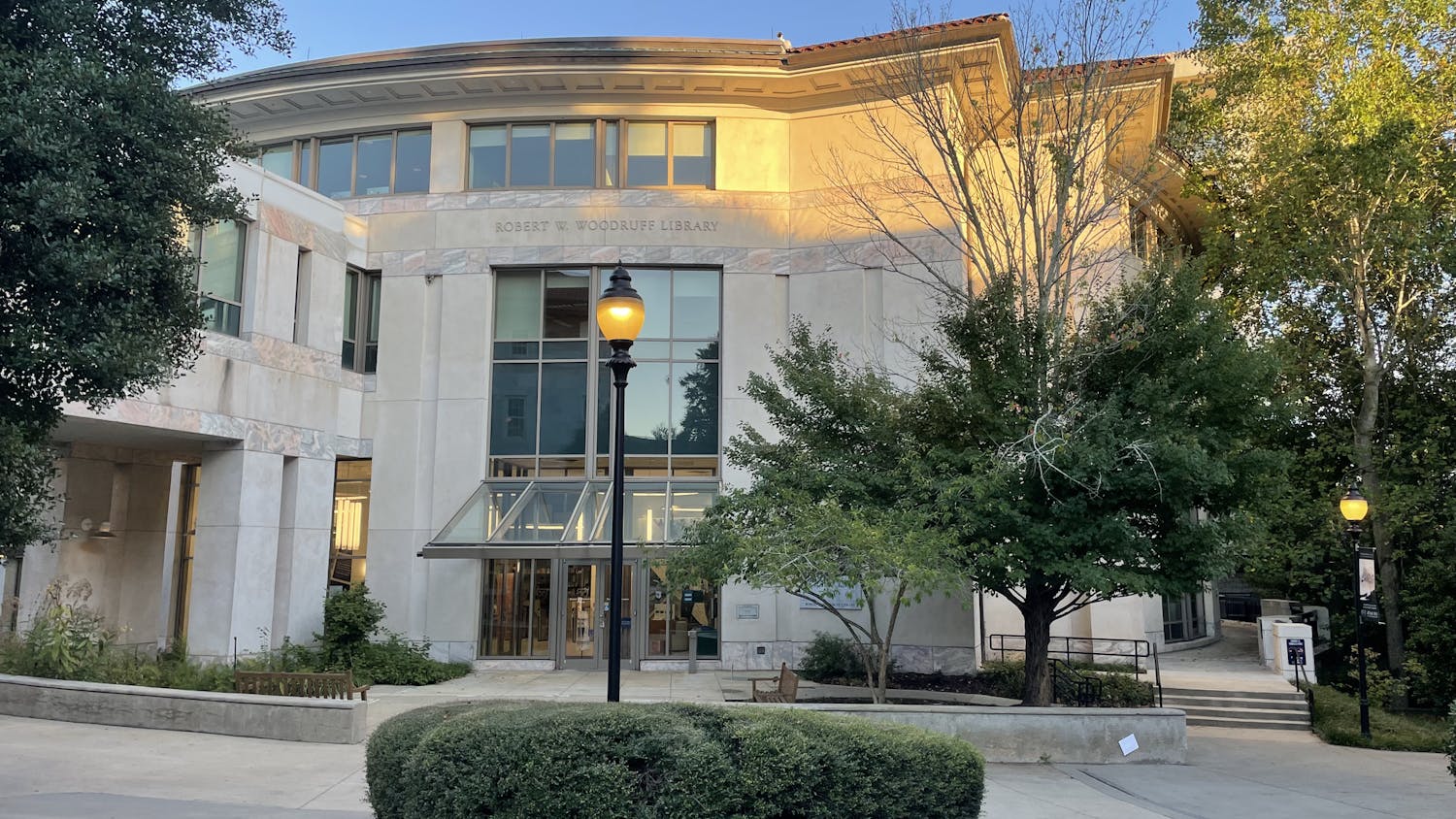Ducemus is a secret society composed of five seniors. The group will be partnering with the Office of Campus Life to form a Greek Life Task Force in the coming weeks. According to Ducemus, the task force will help create conversations and solutions to the current questions that face Greek Life. According to Senior Vice President and Dean of Campus Life Ajay Nair, the group will play an important role in the formation of the Greek Life Task force. The Emory Wheel could not confirm the identity of those who wrote the editorial but Nair; Assistant Vice President of Development, Alumni Relations, and Parent & Family Programs Bridget Riordan and Assistant Vice President for Community Suzanne Onorato all confirmed that the author or authors of the editorial are members of Ducemus and currently seniors at Emory.
Without a doubt, Emory takes considerable pride in its Greek Life system. With close to 2,500 members, Greeks comprise over a third of the undergraduate student body. This strong and vibrant community allows students to grow, develop and become leaders on campus. In fact, some of Emory’s most prominent student-led initiatives, from Wonderful Wednesday to TableTalk and the Symposium, stem from Greek student initiatives.
And while the University proudly expresses this to the greater public, recent interactions between Greek chapters and the administration have not been reflective of the respectful partnership that both parties should work to achieve. As many Greek leaders can attest to, conversations at almost every level have been comprised of opposing views on the future of Greek Life. In light of recent incidents, and what many students consider a rapidly transforming Greek system, we are writing to articulate a number of issues facing our Greek community that have spanned across all councils. Our goal is not to dismiss student opinion or to criticize the administration but to ask for action on behalf of the students and the administration to promote respectful discussion between the two groups that can lead to tangible changes in our Greek community.
The Greek community is not perfect. Incidents of hazing, sexual assault and racial and socioeconomic divides are often visible. These issues are unacceptable, and they must improve. So while much progress has been made over the past several decades, clearly more needs to be done from both parties regarding these important topics. In this sensitive time of change, one would hope a relationship of trust and support between students and administration would form to address these issues. The solutions should stem from within the organizations and be supported by the administration, rather than forced on the community.
For example, increased and more intense daily walkthroughs of Greek housing creates a feeling of mistrust between students and the administration. By their nature, walkthroughs have created the perception that Greeks are being monitored under the highest level of scrutiny and make them uncomfortable in their own homes. Additionally, the recent application for themed housing has understandably led Greeks to feel as though there is a diminishing space for them on campus. While we are excited for the opportunity to see continued change on the Row, we believe the process should include a thorough and thoughtful conversation.
Along with conversations regarding housing, we hope to examine the current tactics used during investigations of Greek organizations. Specifically, students have raised concerns about the definition and treatment of hazing on campus. We would like to address the sourcing of allegations, how they are investigated and resulting sanctions. A handful of chapters have been removed from campus over the past few years. Unfortunately, removal from campus does not stop or correct these systemic issues, but rather it allows these issues to persist over time without being properly addressed.
The members of Ducemus, a society charged with promoting tradition and vision in the life of the Emory community, would like to introduce a platform on which to address these issues.
The Greek Life Task Force, supported by Senior Vice President and Dean of Campus Life Ajay Nair and the Assistant Vice President of Community Suzanne Onorato, will provide the framework for productive conversation leading to tangible change. The Task Force will be comprised of a diverse mix of student leaders from every facet of the Emory community, both Greek and non-Greek, based on merit and passion for the betterment of the community around them. Concerned students can continue to follow the progress and developments of this Task Force through a series of editorials.
Despite the challenges ahead, Ducemus is incredibly excited to help create a new vision for the future of Emory Greek Life. This sentiment is shared between students, alumni and administration. University President James W. Wagner has expressed optimism about the future of Greek Life at Emory. Like Ducemus, he views Emory’s Greek Life students as an integral part of the greater Emory community and believes a safe framework of learning and respect will be instrumental in the community’s development. With careful collaboration and a clearly defined vision, we can make Emory’s Greek Life a model for universities nationwide.









